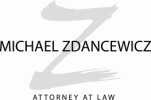 In this ever-changing world that we live in, the use of paper checks is steadily decreasing. The use of paper checks is decreasing for a number of reasons. One of those reasons is that financial institutions discourage their use. There are handling costs for paper checks, and the risk of third-party fraud is higher. Another reason the use of paper checks is decreasing is because mobile banking is increasing, and institution sponsored bill pay is consumer friendly.
In this ever-changing world that we live in, the use of paper checks is steadily decreasing. The use of paper checks is decreasing for a number of reasons. One of those reasons is that financial institutions discourage their use. There are handling costs for paper checks, and the risk of third-party fraud is higher. Another reason the use of paper checks is decreasing is because mobile banking is increasing, and institution sponsored bill pay is consumer friendly.
Moreover, if a customer using bill pay has insufficient funds in the bill pay account, no check will be issued. At some point, we will be in an all-digital-format financial world. Until that time comes, paper checks are still with us.
The main difference between the digital and paper worlds is time. Digital happens in a matter of seconds. Paper checks take days to process. Consider the amount of time that passes from when the issuer signs the check to when the paper is received, deposited, and cleared. Following the paper check, once received and deposited, the financial institution will electronically “send” the check to the collecting bank (the place where the issuer banks) usually within 24 hours. The collecting bank then transfers the money from the issuers account to the institution where the check was deposited.
Some check writers use the time delay to get the money in the account for a check that’s already issued. An issuer may write and mail a check on Monday, when the issuer knows there are insufficient funds in the account, in hopes that a deposit on Wednesday will cover the check. Despite the issuer’s intentions, if a check is written at a time when there are insufficient funds in the account, the issuer can face civil and criminal liability.
Putting aside the criminal repercussions, Arizona law severely punishes those who write a check with insufficient funds in the account. The civil “bad check statute” is found at Arizona Revised Statutes §12-671. Section A of the statute imposes liability on a person who “. . .for himself or for another, with intent to defraud. . . delivers to another person or persons a check or draft on a bank or depositary for payment of money, knowing at the time of such making, drawing, uttering or delivery, that he or his principal does not have an account or does not have sufficient funds in, or credit with, such bank . . . to meet the check or draft in full upon presentation . . .” The statute goes onto impose liability “ . . . for twice the amount of such check or draft or fifty dollars, whichever is greater, together with costs and reasonable attorney’s fees as allowed by the court on the basis of time and effort expended by such attorney on behalf of plaintiff.”
If there is proof that there were insufficient funds in the account at the time the check was presented, and that the issuer failed within twelve days after receiving notice of nonpayment or dishonor to pay the check or draft, that such evidence will establish the prima facie evidence of intent to defraud. Not only can the issuer be penalized for twice the amount of the face value of the check, the issuer may also be liable for attorneys’ fees incurred by the creditor who takes action to collect upon that check.
To take advantage of the enhanced civil penalties, the recipient of the bad check must provide notice to the issuer. Strict compliance with the statutory notice provision is required to lay claim to an entitlement to the enhanced penalties.
The attorneys at Windtberg & Zdancewicz, PLC provide clients with experienced legal representation in all litigation and bankruptcy matters. We are experienced in creditor’s rights prosecuting and defending garnishments, charging orders, attachment, property execution, trustee’s sales, foreclosures, judgments, judgment collection, domestication of foreign judgments, and creditor’s issues in bankruptcy cases. If you need assistance with your collection matters, please contact us at (480) 584-5660.
